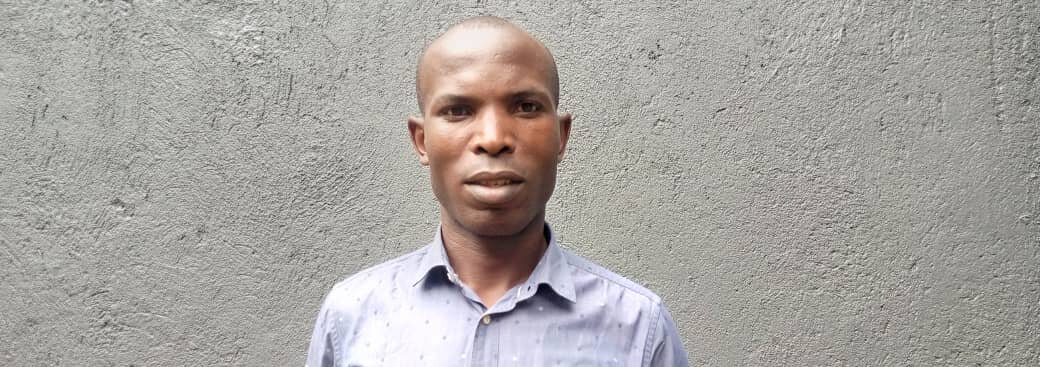
Olivier Habimana has a Bachelor’s degree in general nursing, coupled with eight years’ experience at Butaro Cancer Centre of Excellence in Kigali with 4 years working as an oncology nurse educator in oncology nursing training, quality improvement, nursing leadership and oncology nursing curriculum development for Rwanda and Africa which have been used for the training of Rwandan and Liberian oncology nurses.
He is currently taking part in the Patient Navigation Project at the Butaro Cancer Centre of Excellence and four other cancer centres in Rwanda in collaboration with C/Can and the Rwanda Biomedical Centre (RBC) as a cancer patient navigator, assisting in the use of the Join digital platform, provided by Allm, to coordinate integrated, multidisciplinary care for breast and cervical cancers.
As a nurse navigator, what do you see as the main challenges cancer patients face in navigating the health system in Rwanda and East Africa to access cancer care?
Cancer diagnosis, staging and treatment services are available only in referral hospitals and there is often only one hospital in each province, which means that patients have to travel long distances. In addition, some hospitals do not have the capacity to detect certain cancers through immunohistochemistry. Therefore, some samples have to be processed in more than one hospital, which leads to delays in reaching a final cancer diagnosis.
Another issue is that some referral hospitals lack the requirements for cancer staging, such as computerised tomography and magnetic resonance imaging machines. Therefore, patients have to be referred from one hospital to another to receive medical imaging.
Similarly, other referral hospitals do not offer a complete cancer treatment package. Some only provide surgery, or surgery and chemotherapy, while certain patients may need surgery, chemotherapy, and radiotherapy. This means patients need to travel to different referral hospitals for cancer treatment, which can lead to a lack of follow-up and fragmented care.
At the same time, cancer care is expensive, and many insurance providers do not cover the medication patients need. Inaccessibility and high costs often lead to patients seeking care from traditional healers, which is a major source of healthcare in developing countries. As a result, cancer diagnosis, treatment and care is often delayed or interrupted, which leads to late presentation, advanced stage diagnosis, and a higher mortality rate than in developed countries.
Finally, there are not enough psycho-oncologists in Kigali to support people diagnosed with cancer, or their relatives and carers. They don’t have the capacity to care individually for each cancer patient.
How are you and other nurses benefiting from the Patient Navigation Project in Kigali?
We receive weekly online training sessions to increase our knowledge within the Patient Navigation Programme on how to improve communication with cancer patients and healthcare providers.
We also received training in the use of the Join digital platform, which helps us coordinate care, and follow up and to store information about breast and cervical cancer patients. This is critical to addressing the problem of fragmented care.
How many nurses are involved in the project? What are their main roles?
There are four nurses involved in the project. We focus on ensuring interoperability and facilitating the implementation of the Patient Navigation Project. We support the communication, sharing and exchange of information so that vital data can be used for the benefit of cancer patients. This is facilitated by the Join digital platform to coordinate care for breast and cervical cancer patients from the first suspicion of cancer to the end of treatment in five cancer centres in Rwanda, overcoming barriers to care and promoting navigation pathways.
Can you tell us more about how the Join digital platform will help to coordinate care and improve patient outcomes?
The Join digital platform simplifies communication and collaboration between members of multidisciplinary teams at the hospitals participating in the project. It enables the secure sharing of contact and clinical information between patient navigators and healthcare providers: it stores patients’ data, from diagnosis through the different stages of treatment and resolution, simplifying follow-up, orientation and clinical decision-making.
Before the implementation of this project, patients faced all sorts of challenges: if they were referred to a hospital for cancer care, sometimes patients would go to the wrong hospital, while others missed their follow-up visits, or they would have to make multiple journeys, one to make an appointment for a CT scan, then another to have the scan, and then another to get the results.
Is there anything else you would like to add?
As mentioned earlier, one of the many challenges cancer patients in Kigali face is the cost of cancer care, much of which is often not covered by medical insurance. Therefore, I would like to advocate including the provision of financial support within this project for patients who cannot afford medication and other forms of treatment.





